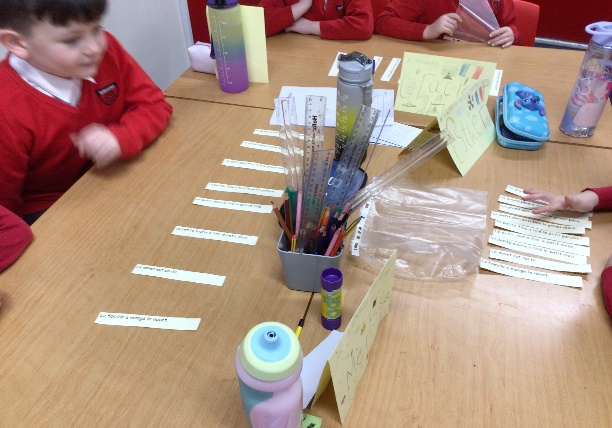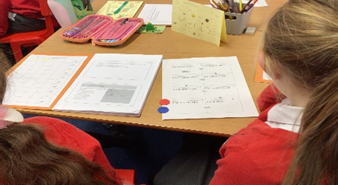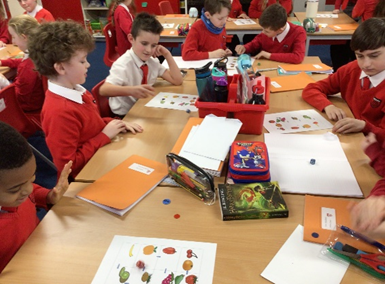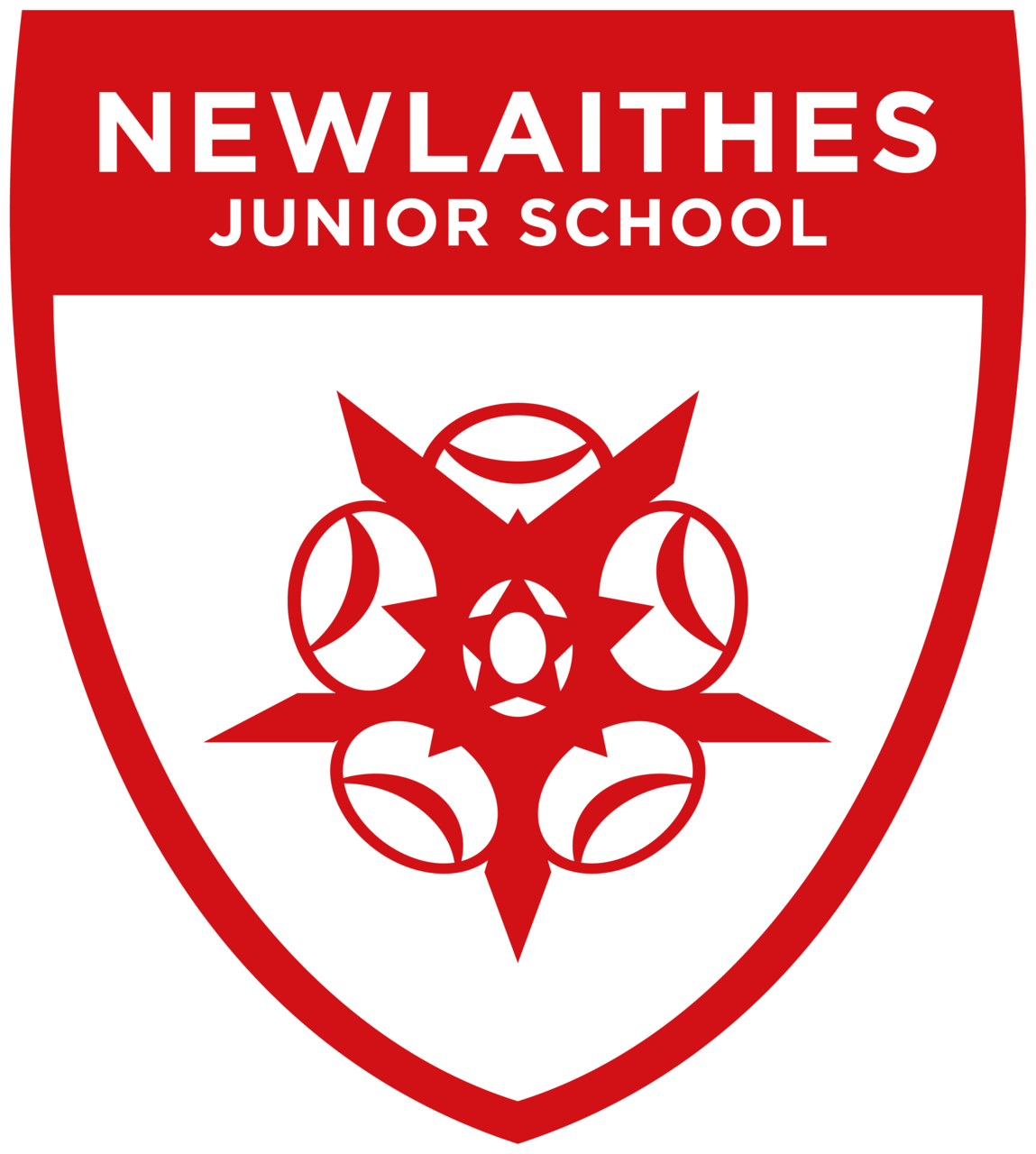MFL
Intent
At Newlaithes Junior School we intend to provide all children with a high-quality education in Modern Foreign Languages, which enthuses them to learn about other languages and cultures and helps to broaden their horizons. By learning a modern foreign language, it is hoped that pupils develop a broader perspective of the world and, in keeping with our whole school values, are encouraged to reflect upon their own cultural identity and respect that of others. All pupils at Newlaithes Junior School will be expected to achieve their full potential in Modern Foreign Languages. Our aim is that pupils will feel confident engaging in spoken French, develop skills in reading, listening, writing, and know that languages can play a part in their future. It is our intention that teaching fosters a genuine interest and curiosity about languages and inspires children to want to learn languages beyond KS2, equipped with the skills and desire to learn other languages and navigate through the curriculum at upper academic levels.
Implementation
Children at Newlaithes Junior School develop their love of languages and make progress in all four skills in French by following a scheme of work adapted and tailored to suit our pupils created by “Primary Languages Network.” Throughout this scheme of work, there are many opportunities to focus on key grammatical features and pupils are constantly exposed to phonetics and sound/spelling links. Weekly lessons of one hour are delivered by a language specialist who uses and encourages the use of target language whenever possible.
L.O. I can read and sequence the main events of a story and join in acting the story out
Progression is ensured throughout KS2 by building on previous lessons. For example, at the start of each lesson, the teacher recaps on prior learning and throughout KS2, pupils revise, recall and consolidate previous language whenever possible and appropriate, often building on this language and extending their skills further. Activities planned and resources created aim to make learning languages fun for children whilst ensuring they develop their language skills each year. These activities include singing songs, playing games, taking part in role plays, reading and performing stories, sentence building, dictionary work and learning how to read for gist and detail. Teaching aims to give purpose and make learning memorable for children. Pupils are given opportunities to read and write for purpose (such as receiving and writing letters to a French penfriend and researching the area their penfriends live in on IPADs). We have also invested in reading materials for pupils appropriate for their age. In year 4 and 5, pupils have a termly “reading lesson” where they are encouraged to read for gist and enjoyment. This is designed to break down the barriers pupils can have when faced with reading in a different language and gradually enables them to build confidence and develop strategies to become more resilient readers. Regarding sharing experiences, pictures of class activities or short videos are uploaded onto DOJO so parents and carers can see what their children experience during Modern Foreign Languages lessons.
lessons. For example, at the start of each lesson, the teacher recaps on prior learning and throughout KS2, pupils revise, recall and consolidate previous language whenever possible and appropriate, often building on this language and extending their skills further. Activities planned and resources created aim to make learning languages fun for children whilst ensuring they develop their language skills each year. These activities include singing songs, playing games, taking part in role plays, reading and performing stories, sentence building, dictionary work and learning how to read for gist and detail. Teaching aims to give purpose and make learning memorable for children. Pupils are given opportunities to read and write for purpose (such as receiving and writing letters to a French penfriend and researching the area their penfriends live in on IPADs). We have also invested in reading materials for pupils appropriate for their age. In year 4 and 5, pupils have a termly “reading lesson” where they are encouraged to read for gist and enjoyment. This is designed to break down the barriers pupils can have when faced with reading in a different language and gradually enables them to build confidence and develop strategies to become more resilient readers. Regarding sharing experiences, pictures of class activities or short videos are uploaded onto DOJO so parents and carers can see what their children experience during Modern Foreign Languages lessons.
Our SEND and disadvantaged pupils are supported in their language learning through differentiated work and supportive materials created by the teacher and often through discussion with class teachers and teaching assistants. Resources are adapted as necessary to reflect the children’s understanding and their varying needs.  Vocabulary is displayed in classrooms to serve as a reminder to children and displays are created in our main corridors each term to celebrate children’s achievements. Opportunities to celebrate and develop confidence in other languages include building in half a term of Spanish to the Autumn 1 scheme of work in year 5 (this also fits in with their topic of “Spain”). Pupils also revisit and build on this for the last half term of year 6. Pupils are given the opportunity from year 5 onwards to attend a lunchtime Spanish club. Furthermore, we host an annual Modern Foreign Languages day which involves all pupils and staff and introduces pupils to other languages and cultures. We are also developing links with local secondary schools. Our main secondary school has created a languages ambassadors project whereby a small group of children have created competitions for our children to enter and visited us to award prizes. In the future this will involve coming to teach a short session of Spanish to our children and potential visits for our children to the local secondary school to experience what KS3 languages entails.
Vocabulary is displayed in classrooms to serve as a reminder to children and displays are created in our main corridors each term to celebrate children’s achievements. Opportunities to celebrate and develop confidence in other languages include building in half a term of Spanish to the Autumn 1 scheme of work in year 5 (this also fits in with their topic of “Spain”). Pupils also revisit and build on this for the last half term of year 6. Pupils are given the opportunity from year 5 onwards to attend a lunchtime Spanish club. Furthermore, we host an annual Modern Foreign Languages day which involves all pupils and staff and introduces pupils to other languages and cultures. We are also developing links with local secondary schools. Our main secondary school has created a languages ambassadors project whereby a small group of children have created competitions for our children to enter and visited us to award prizes. In the future this will involve coming to teach a short session of Spanish to our children and potential visits for our children to the local secondary school to experience what KS3 languages entails.
Termly partnership cluster meetings are hosted by the subject lead at Newlaithes Junior School which are attended by other local schools’ MFL coordinators. These meetings aim to keep abreast of developments in Modern Foreign Languages and to share good practice.
Impact
 Our MFL curriculum ensures that all pupils develop key language learning skills set out by the national curriculum, as well as a love of languages and learning about other cultures. The subject leader has submitted a strategic 3 year plan and a one year action plan which is reviewed by the head teacher and one of our governors to monitor targets we wish to implement across the school. The Modern Foreign Languages coordinator is observed regularly by the head teacher and performance management is reviewed.
Our MFL curriculum ensures that all pupils develop key language learning skills set out by the national curriculum, as well as a love of languages and learning about other cultures. The subject leader has submitted a strategic 3 year plan and a one year action plan which is reviewed by the head teacher and one of our governors to monitor targets we wish to implement across the school. The Modern Foreign Languages coordinator is observed regularly by the head teacher and performance management is reviewed.
Evidence of lessons taught can be seen in children’s French books (photos, drawings, sentences, reading materials) and resources for each year group can be found on the “Curriculum” drive in the MFL folder.
 The French teacher monitors learning informally each lesson by observing progress made by individuals, pairs and groups and through whole class feedback. Furthermore, to ensure that progress made by pupils across the key stage, French is assessed half termly using the Primary Language Network “Puzzle it out” activities relating to the DFES targets in Modern Foreign Languages. These are more formal assessments but are conducted in a way that does not draw attention to this to the pupils. The results of these provide evidence of progress and inform the teacher of any particular weakness, thus informing future planning. These assessments cover all four skills and the results (emerging, meeting or exceeding) are recorded in the class teacher’s assessment file providing information about progress throughout pupils’ 4 years of language learning. The MFL coordinator also has a list of the 12 DFES targets for each year group which Primary Language Network language experts have interpreted and developed for each year group. The teacher ensures that these are being met by recording the date each of these targets is met. This provides an “at a glance” opportunity to spot any gaps in skills which can be addressed or developed further in future units of work.
The French teacher monitors learning informally each lesson by observing progress made by individuals, pairs and groups and through whole class feedback. Furthermore, to ensure that progress made by pupils across the key stage, French is assessed half termly using the Primary Language Network “Puzzle it out” activities relating to the DFES targets in Modern Foreign Languages. These are more formal assessments but are conducted in a way that does not draw attention to this to the pupils. The results of these provide evidence of progress and inform the teacher of any particular weakness, thus informing future planning. These assessments cover all four skills and the results (emerging, meeting or exceeding) are recorded in the class teacher’s assessment file providing information about progress throughout pupils’ 4 years of language learning. The MFL coordinator also has a list of the 12 DFES targets for each year group which Primary Language Network language experts have interpreted and developed for each year group. The teacher ensures that these are being met by recording the date each of these targets is met. This provides an “at a glance” opportunity to spot any gaps in skills which can be addressed or developed further in future units of work.
